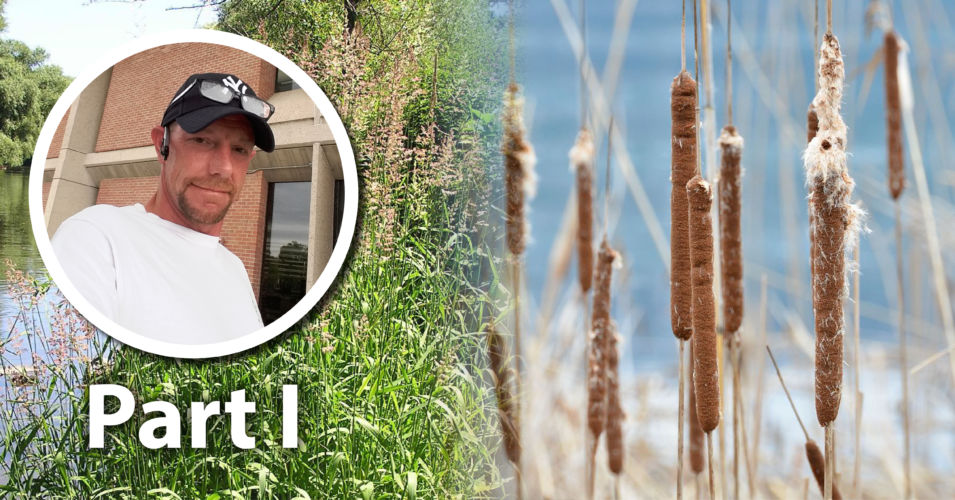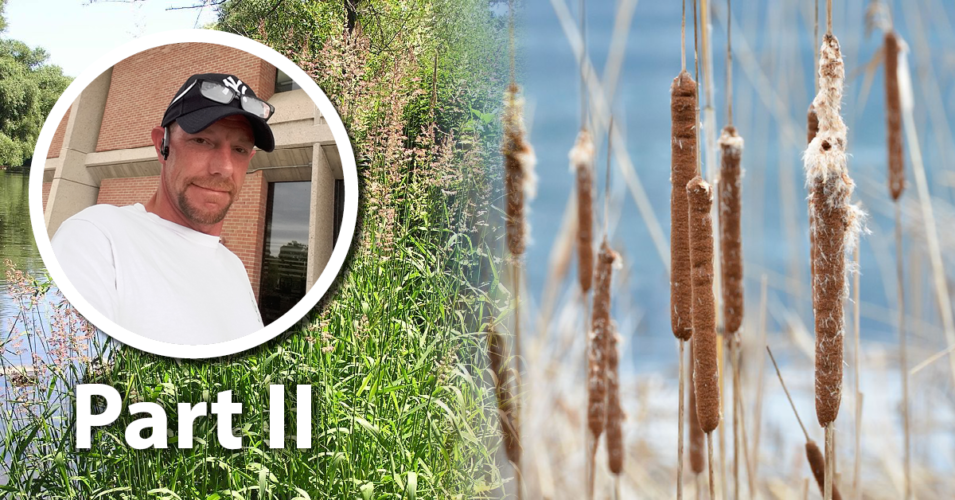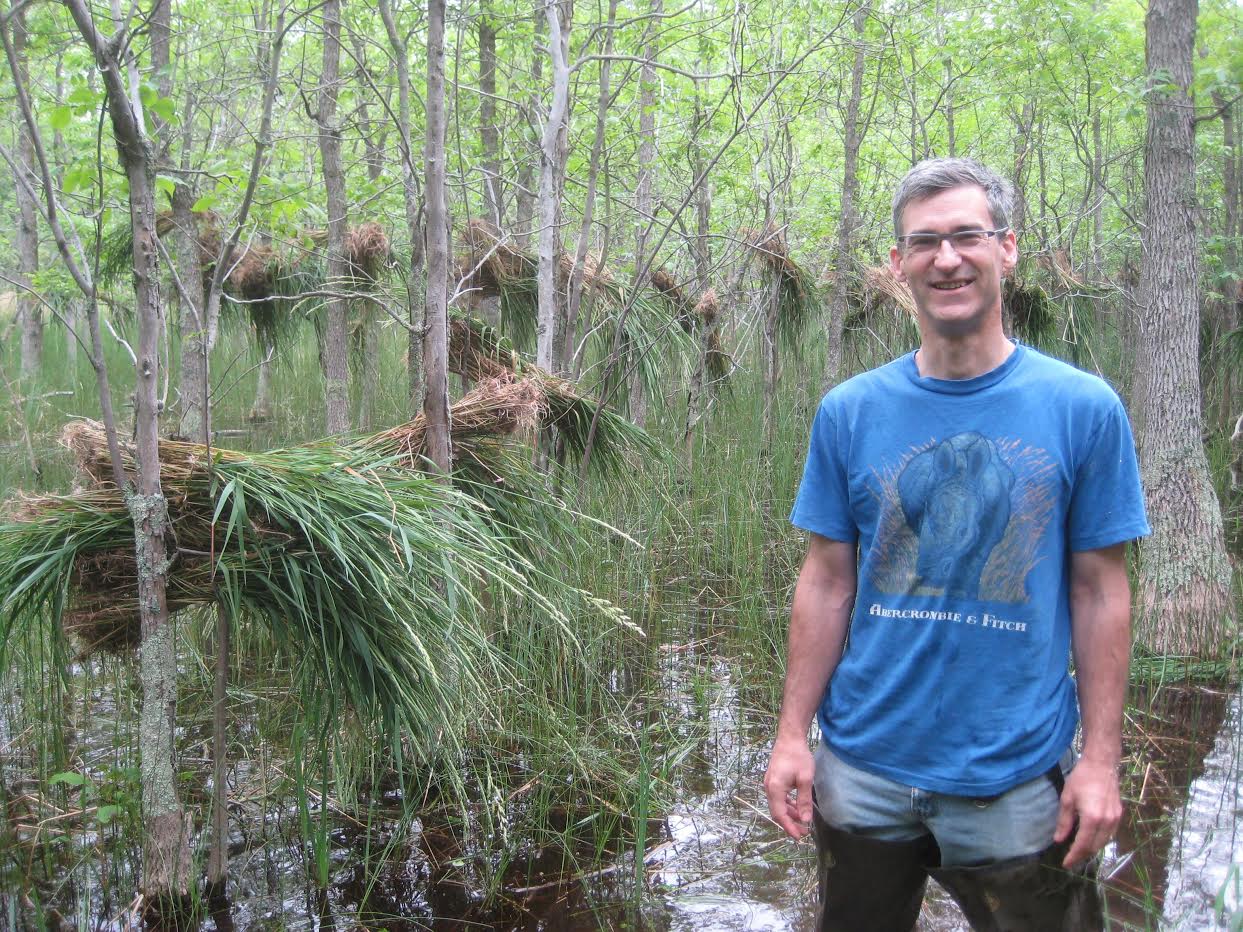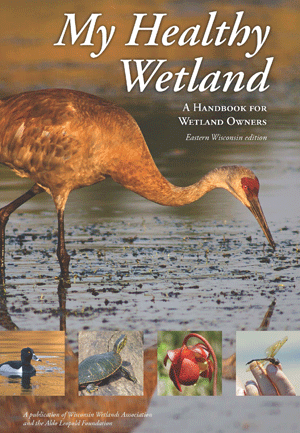Note: This presentation will be more technical than many of the talks in the Wetland Coffee Break series
Invasions of reed canarygrass (Phalaris arundinacea) and cattail (Typha sp.) displace native wetland vegetation and can develop into dense monotypic stands that frustrate management efforts. Reversing these invasions is often considered an unrealistic management goal. Although we already possess sufficient background knowledge of these species and well-tested techniques to confront these invasions, most invasive species suppression programs emphasize plant community structure over system dynamics, which often results in failure. We measured 26 environmental variables (10 vegetation descriptors and 16 soil nutrients) in 13 riparian sedge meadows along a gradient of Phalaris abundance ranging from 2.5% to 90% cover. Ordination analysis of this large data set showed that sites separated into two discrete clusters rather than being continuous along the gradient of Phalaris abundance. This result suggests that concepts from state-and-transition models, which are based on community dynamics, are more accurate predictors of restoration pathways and management outcomes than conventional plant succession theory. Part 1 will introduce concepts from state and transition models and systems approaches to invasive species management. In part 2 (on March 25 ), we will apply this theoretical thinking toward on-the-ground management with a case study in successfully reversing a Phalaris invasion with a systems approach.
Craig Annen, Integrated Restorations
Recorded March 18, 2022
Craig Annen earned his bachelor’s of science in environmental science and plant molecular cell biology from Edgewood College in 1998 and his master’s of science in aquatic botany from the UW-LaCrosse in 2001. His research interests include invasive species management, economical ecology, and mathematical ecology. Craig is senior ecologist and operations manager of the firm Integrated Restorations, LLC. He speaks fluent German, is a New York Yankees fan, and is a gourmet cook of Middle Eastern and German cuisine.
Related Content
Wetland Coffee Break: Toward more effective invasive species management: Part 2
Managing reed canary grass
Learn more about reed canary grass from a less technical perspective through this article.
Wetland Coffee Break: So you want to manage your wetland. Where to start?





